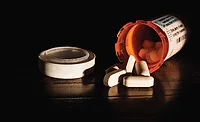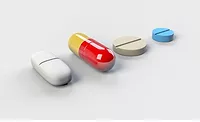The (In) Security of Drug Testing

Urine is frequently tested to detect illicit drug use for such things as accident investigations; forensics and law enforcement; screening of employees and potential employees; fitness of duty checks for critical personnel such as those involved in the transportation or nuclear industries; tests of national, international, and scholastic athletes for cheating; and evaluations of whether an individual should receive (or continue to hold) a security clearance.
Because the results of drug tests strongly impact a person’s career, livelihood, and reputation, and because the results of drug testing have serious implications for government, corporations, and society, good security to prevent tampering would seem to be essential.
LOOPHOLES EXIST
In a paper that also appeared in the Journal of Drug Issues, researchers with the Vulnerability Assessment Team (VAT) at Argonne National Laboratory question the security used to protect urine samples for drug testing. The VAT analyzed 23 different urine collection products widely used for drug testing and demonstrated how all of them (and their built-in security features) could be easily and quickly tampered with using only low-tech tools and methods available to almost anyone. This makes it possible to create a false positive or a false negative test result.Security concerns about drug testing have previously focused primarily on the possibility of the test subject trying to swap his/her urine sample for a fake (or chemically altered) sample during sample collection in hopes of hiding illicit drug use. Issues of tampering with the sample collection vial before or after sample collection, however, have been largely ignored, as has the possibility of someone wanting to generate a false positive test result for somebody else. The latter might be done for a variety of reasons including revenge against a disliked co-worker or employee, management scapegoat of an employee after a transportation accident, sabotage directed towards an organization and its key personnel, or attempts to disqualify an athlete or his/her team. (Entire national sports teams can be disqualified from international sporting events if just two of their members fail a drug test.)
There also are questions about the security practices, standards, and guidelines for urine drug testing used by government, sports anti-doping organizations, and private companies. There ought to be improved security practices in the handling of urine drug testing samples, and especially better tamper detection.
ABOUT THE VULNERABILITY ASSESSMENT TEAM
The Argonne Vulnerability Assessment Team in Argonne’s Nuclear Engineering Division studies physical security for applications such as nuclear safeguards, cargo security, homeland security, and product tampering and counterfeiting. The VAT has extensive experience with vulnerability assessments and developing better tamper-indicating seals and tamper detection methods. For more information, see http://www.ne.anl.gov/capabilities/vat.Argonne National Laboratory, an R&D center, brings the world’s brightest scientists and engineers together to find exciting and creative new solutions to pressing national problems in science and technology. The nation’s first national laboratory, Argonne conducts leading-edge basic and applied scientific research in virtually every scientific discipline. Argonne researchers work closely with researchers from hundreds of companies, universities, and federal, state and municipal agencies to help them solve their specific problems, advance America’s scientific leadership and prepare the nation for a better future. With employees from more than 60 nations, Argonne is managed by Chicago Argonne for the U.S. Department of Energy’s Office of Science.
Links
Looking for a reprint of this article?
From high-res PDFs to custom plaques, order your copy today!






